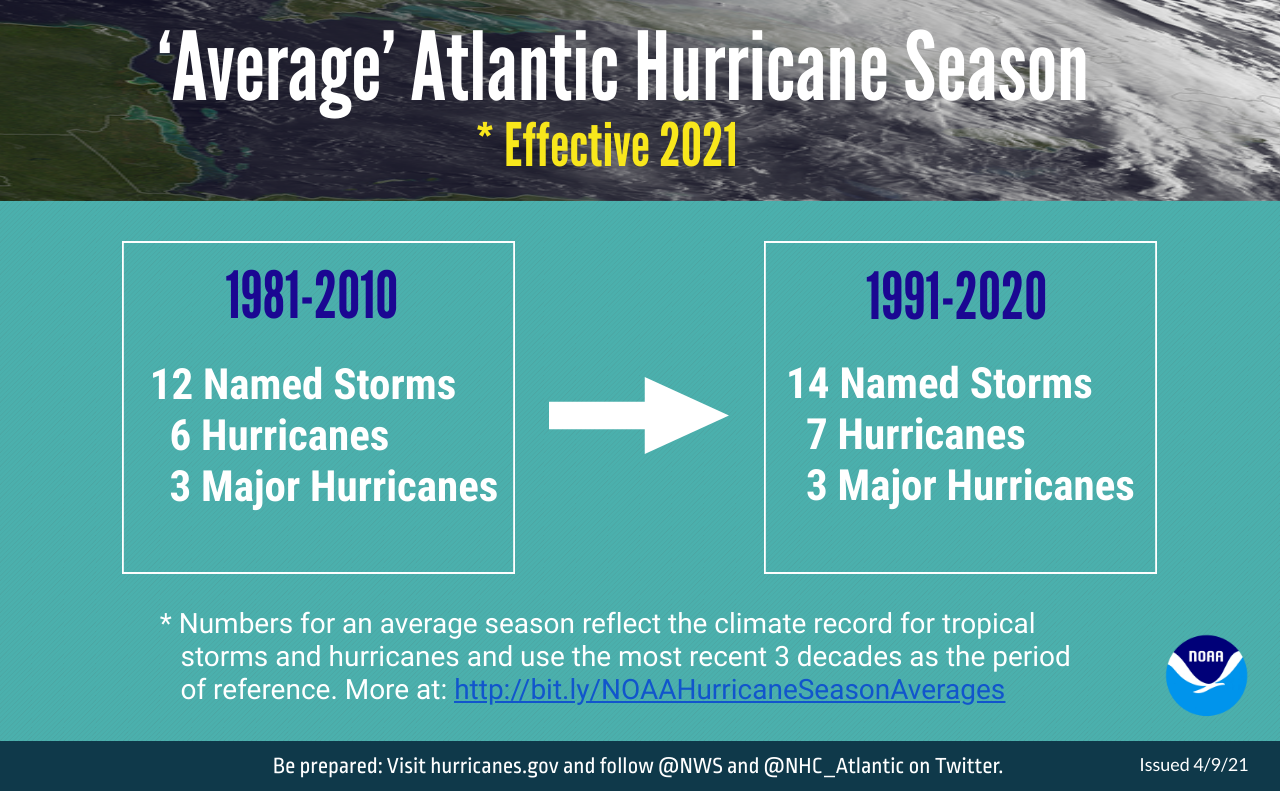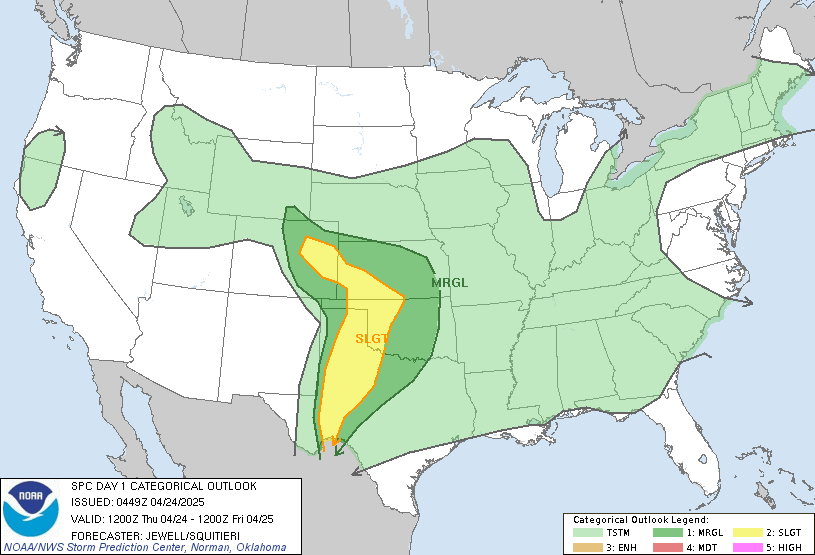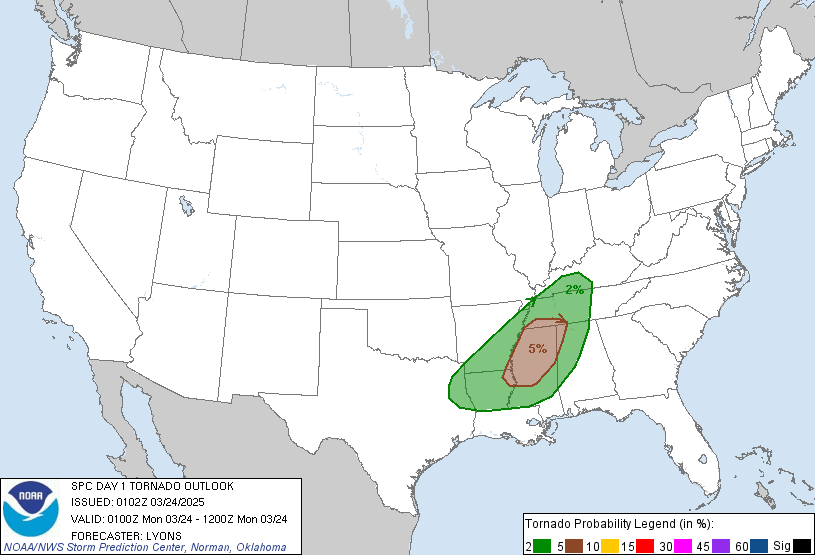Hurricane Season forecasts are going to be the big buzz during the next six weeks as we inch closer to the official start of Atlantic Hurricane Season. Accuweather released one a week ago, NOAA will have theirs out in a handful of weeks, and every weather enthusiast on the internet has an opinion, too.
I don’t bother with anyone who can make a buck off a scary forecast. Accuweather saying there will be 45 named storms is going to get a ton of clicks (and money) whether they are right or wrong. Same goes with folks running random facebook pages and blogs. Scaring people into slicking and sharing doesn’t incline me to believe things.
So! Here is a look at the first look at the 2022 Hurricane Season from the smart folks at Colorado State: As researchers, the only way they make money is to be as accurate as possible.

Notice they are calling for an above-average season. Most notable is that the forecast is for more storms than they forecast for in 2021. And 2020. Likely they are trying to make up for under-forecasting all of the storms the previous two years. Not that I can blame them, we have been blitzkrieg’d by tropical systems during the last 24 months.


Historically speaking, Colorado State under-forecasts the number of named storms. Going back to 2015 the only two times the Hurricane Season fell short of a prediction was in 2021 and in 2018.
In 2021 the forecast was for eight hurricanes and we only managed seven as Tropical Storm Fred was strengthening but ran out of time before landfall.
In 2018, the forecast was for three Major Hurricanes and there were only two. But recall that Hurricane Helene and Hurricane Oscar that season both topped out within 1mph of being Category 3 Hurricanes, which would have meant the forecast was under-done.
Sow when they forecast 19, 9, and 4 They have a very good track record of either hitting it or being too low.
During this (and previous) event, people have asked if there is a way to “‘help’ or ‘say thanks’ for all of the forecasting work I do. For the longest time I said, ‘nah! I just like doing this! You know, to help!’ But I was recently convinced that others want to ‘help’ in their own way, too.
And their way of helping, or simply saying ‘thank you’ is with a donation to the blog to help keep it running – or to help keep me running. So I’ve added this link. If you are one of those people, let me say thank you to YOU.
Early Season Tropical Development
Recall that last year NOAA updated the seasonal “Average” numbers to reflect the increasing the number of storms per season.

Part of the increase during the last few years is perhaps the number of “preseason” storms forming in May. And that showcases something interesting: Tropical (and subtropical) systems are being named earlier and earlier every year.
The researchers over at Climate Central put together this quick chart to show the change over time.

And before you ask, “Is this due to Climate Change, Nick?” I have to say that I don’t know. And neither does the scientific community. There are a handful of hypotheses out there, but none of them have been vetted and tested enough to be agreed upon by a majority of people within the field.
I will say this, though, that I think it is a three-fold situation.
- As our atmosphere warms, the oceans (and Gulf) warm by up to four-times as much. So while we always talk about Climate Change being a “Golly, the temperatures of the air sure are warmer today more frequently than 50 years ago!” We should really be focusing on, “Golly the water temperatures today sure are as much as four-times warmer than we think the air temperature feels warmer”
So if Climate Change is apart of the equation, I would put money on it being a water problem, not an atmosphere problem. And as we all know, warmer waters make it easier for tropical systems to develop and propagate.
- Technology is much better today than it was 15 years ago. And, based on Moore’s Law, you can estimate that computers forecasting the weather today are about 3 million times better today than the computers that were used to forecast Hurricane Katrina.
That means that we are that much better at seeing if systems are out there, where they are and if they exhibit tropical characteristics or not. That, in turn, makes it easier to figure out if a storm necessitates a name or not. - It seems – and you guys know how much I hate using “feels” or “seems” when talking about Science stuff, but here I go – like the NHC has been a bit more inclined to name a storm, in recent years, than in years past. I don’t have any hard data or evidence to show, but it seems like if storms are on the edge, they’ll name it. Where 20 years ago, maybe they let it slide.
That may be another piece of the puzzle to ‘more earlier named storms’ but there isn’t any worthwhile data to back that up.
Warmer Waters, Stronger Storms
If you’ve lived through one Hurricane season, or 100, you probably know that the warmer the waters are, the stronger a storm can become.
And this year the Gulf isn’t quite as warm as 2020. But is warmer than 2021. Take a look at the Sea Surface temperatures below.



But looking across the entire Atlantic, comparing 2022 to 2020, things look rather similar.


So the potential is there as far as the Ocean is concerned. It is all a matter of things lining up atmospherically.
Yeah, but what do you think about this season, Nick?
I find it nearly impossible that we have another record-breaking season like 2020. As active as 2021 was, it only made it to 21 named storms – not 30.
But I can’t argue against Colorado State – it looks like an above average season.
But since some folks want my take, I did some very scientific – and very real – number crunching to come up with the following outlook….

Notice that I am calling for less than or up to 16 Named Storms. Or more than 16 Named Storms. We may see up to 8 Hurricanes. Or more than 8 Hurricanes. And there is a potential for up to 4 Major Hurricanes. Or there may be more than 4 Major Hurricanes.
The range is from 0 to 50 Named Storms possible this season. Up to 25 Hurricanes, too. And Perhaps 13 Major Hurricanes. In other words: I have no idea. But I trust the people who do. And I trust history.
And history tells me that the people who do forecast these things have under-forecast the season totals at nearly every turn. So 19, 8, and 4… could easily be 25, 12, and 6.
But hey, above average or below average, I say prepare the same. Because whether there are 30 storms or 1 storm… if any storm comes near you, you’re going to want a Hurricane Kit ready to go.
Check out the Hurricane Preparedness Page for for information about getting prepared now and being ready to go when a Hurricane does forma nd may be threatening your home.
The Bottom Line
Prepare now for Hurricane Season. I am going to put together my Hurricane Preparedness Kit during the next two weeks. And you should, too. Make sure you’ve got everything you may need, so if the worst happens, you’re ready to go.
And keep up with the forecast through the summer. Check back for details about what is happening out there at least once every other day. Just a peek. Just check in to make sure nothing is happening. It’ll only take a few minutes. But it may be the difference between being ready to go, and having to play catch up.
And lastly, enjoy the summer. Don’t let the potential for an above average hurricane season change anything that you plan to do this summer. Go on trips, spend time with the family, invite those friends from out of town to come visit.
After two years of Pandemic riff-raff, we all need and deserve some fun. Don’t let this forecast ruin any of that for you.

